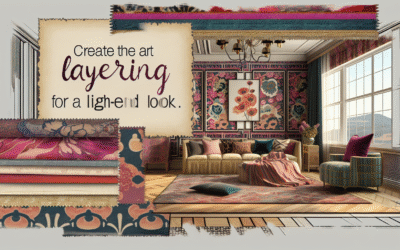
Living in small spaces is becoming a reality for many of us. With urbanization on the rise, we are often left to adapt our lifestyles to fit our surroundings. But this presents a challenge: How do you prove that small spaces can be both stylish and functional? In this article, we will explore contemporary interior design for small spaces. You’ll learn everything from choosing the right colors to selecting multifunctional furniture, maximizing natural light, and employing smart design strategies. By the end, you will be equipped with practical insights to transform your small space into a haven of style and functionality.
Let’s delve into innovative design strategies that will help you create the perfect living space.
Understanding Contemporary Interior Design
Defining Contemporary Design
Contemporary interior design reflects the present moment. It is ever-evolving, characterized by clean lines, minimalism, and an emphasis on functionality. This style promotes the use of neutral colors, innovative materials, and a harmonious blend of space and light.
Key Principles of Contemporary Design
- Minimalism: Less is more; focus on essential elements.
- Functionality: Every piece of furniture should serve a purpose.
- Neutral Colors: Use shades of white, gray, and beige to create a calming environment.
- Textures: Incorporate different materials for depth and interest.
1. Maximizing Small Spaces
Small spaces require clever techniques to maximize every inch. Here are some strategies.
Smart Furniture Choices
Opt for multi-functional furniture. For example, a sofa bed can serve both as seating and a sleeping area, while ottomans can provide hidden storage space. Additionally, choose furniture with legs for an airy feel, as this creates the illusion of more space.
Optical Illusions with Color and Layout
Light colors can make a room feel larger. Consider soft whites or pastels for walls and larger pieces of furniture. Mirrors also work wonders, reflecting light and giving the perception of a more expansive area. Arrange furniture to create an open flow and avoid clutter.
2. Creating a Harmonious Atmosphere
In small spaces, harmony is key. It helps in making the area feel cohesive and larger.
Using Color Wisely
Limit your palette to three or four main colors. This helps maintain visual coherence and prevents overwhelming the space. Use stronger colors sparingly, perhaps as an accent wall or small decor items.
Lighting Options
Utilizing natural light is crucial. Use sheer curtains to allow light to filter through while ensuring privacy. Add mirrors strategically to bounce light around the room. Combine different types of lighting—ambient, task, and accent—to create a warm and inviting atmosphere.
3. Incorporating Personal Style
Even in a small space, it’s essential to reflect your individuality.
Artwork and Decor
Incorporate your favorite art pieces or photographs. Large-scale artworks can serve as a focal point and distract from the room’s size. Be selective with decor to avoid clutter.
Plants and Greenery
Add some fresh air with indoor plants. They not only purify the air but also add a splash of color and life to your small space. Think vertical gardens or hanging plants to save floor space.
4. Practical Storage Solutions
Storage is a vital consideration when designing a small space.
Built-in Solutions
Consider bespoke cabinetry that maximizes vertical space, such as floor-to-ceiling shelves. Utilize corners and under stairs creatively for storage options.
Decluttering Strategies
Adopt a minimalist approach—only keep items that serve a purpose or bring you joy. Regularly reassess your possessions, and don’t hesitate to donate or discard items that you no longer use.
5. Case Studies and Real-World Applications
To give you a clearer picture of contemporary design for small spaces, let’s discuss successful examples from various designers.
Small Apartments
Many urban apartments incorporate design principles that maximize functionality. Consider platforms beds with built-in storage drawers or kitchens that use every inch, including overhead cabinets that reach the ceiling.
Studio Spaces
In studios, zoning becomes crucial. Use furniture placement or furniture pieces like room dividers to create separate areas for sleeping, dining, and relaxing.
6. Tools and Resources for Small Space Design
Empower yourself with the right tools.
Design Software
Utilize software like SketchUp or Roomstyler to visualize your ideas in 3D. These tools allow for virtual experiments with layout and color schemes.
Professional Services
If budget allows, consider hiring an interior designer. They can offer tailored advice that elevates your small space to new heights of style and functionality.
FAQs about Contemporary Interior Design for Small Spaces
What are the best colors for small spaces?
Light, soft colors create an illusion of space. Whites, beiges, and light pastels are ideal. Bright colors can work as accents for a pop of interest.
How can I make a small room feel larger?
Incorporate mirrors, light colors, and smart furniture arrangements to enhance openness. Decluttering also plays a significant role in achieving a larger feel.
What types of furniture are best for small spaces?
Multi-functional furniture such as sofas that convert into beds and ottomans with storage capabilities work best. Look for pieces that are size-appropriate and not overstuffed.
Can I use plants in small spaces?
Absolutely! Opt for small to medium-sized houseplants, hanging plants, or vertical gardens. They add life without occupying much space.
What is the essence of contemporary interior design?
Contemporary design centers on minimalism, functionality, and open spaces, often featuring neutral palettes, sleek lines, and innovative materials.
Conclusion & Next Steps
By embracing contemporary interior design for small spaces, you can transform your home into a stylish and functional oasis. Remember the key takeaways: prioritize light colors, opt for multifunctional furniture, and maintain a harmonious atmosphere. Now it’s time to implement these strategies and make your small space a true reflection of your style.
For related insights, consider checking our articles on Interior Design Trends and Small Space Solutions.
Content Disclaimer
This article is for informational purposes only and does not constitute professional advice.
Categories
- Accent Walls & Ceilings (84)
- Art Curation & Gallery (83)
- Bedding Style Trends (89)
- Bedroom Makeover (96)
- Bohemian & Eclectic Styles (80)
- DIY & Budget-Friendly Decor (78)
- Eco-Friendly Design (83)
- Furniture Care (87)
- Home Decor & Design Ideas (181)
- Home Wellness Spaces (103)
- Integrated Outdoor Living (91)
- Japandi Style (84)
- Kids and Nursery Decor (73)
- Living Room Decor (99)
- Mix & Match Techniques (95)
- Modern & Contemporary Design (88)
- Rug Sizing & Placement (89)
- Scandinavian Design Inspiration (51)
- Seasonal Home Decor (100)
- Small Space Solutions (93)
- Wall Art & Painting Tips (94)
Recent Comments
Archives
Product Gallery
-
Majestic African Wildlife Canvas Art for Stylish Home Decor
Rated 5.00 out of 5 -
Cozy Irregular Green Plush Rug for Nordic Living Spaces
Rated 5.00 out of 5$44.23 – $278.89Price range: $44.23 through $278.89 -
Scandinavian Geometric Area Rugs for Stylish Home Décor
Rated 5.00 out of 5$33.15 – $502.10Price range: $33.15 through $502.10













